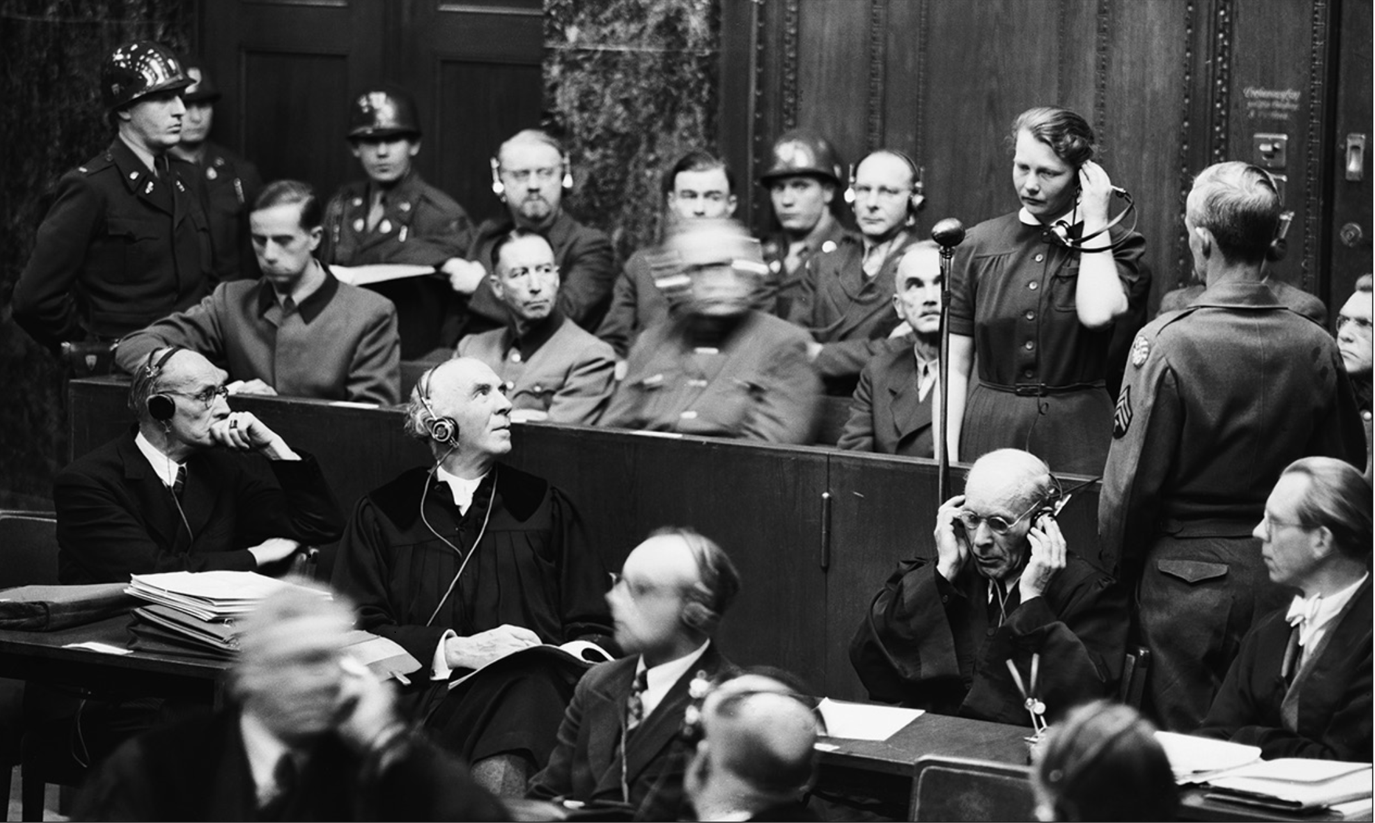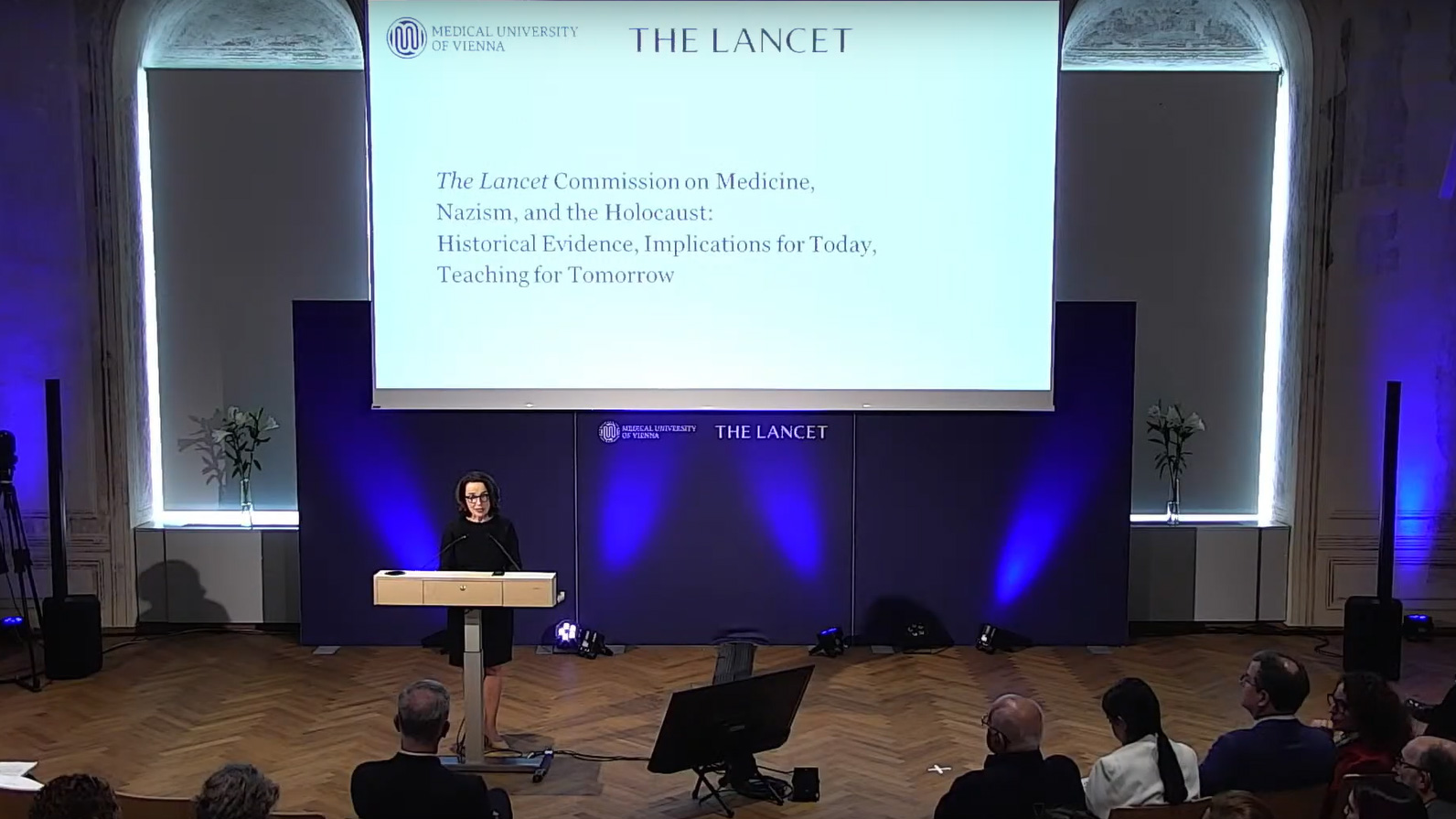
(Vienna, 09 November 2023 (APA)) The Holocaust and other mass murders under the Nazi regime would hardly have been conceivable without the involvement of medical professionals. This has once again been highlighted by the renowned scientific journal "The Lancet". A commission of 20 international researchers, including medical historian Herwig Czech from MedUni Vienna, has now published a comprehensive report on Nazi medical crimes. The report was presented at an event at the Josephinum on November 9, 2023.
The report, which is based on 878 cited publications, is intended to clear up misunderstandings on the subject and provide doctors with a basis for reflecting on fundamental ethical issues. According to Czech, one of the three main authors of the study and co-chair of the commission, knowledge about "this most extreme case of medical professionals' involvement in human rights violations" is of "universal importance". Nevertheless, the researchers believe that there is a lack of knowledge in the healthcare sector on the subject of Nazi medicine.
Millions of Jews fell victim to Nazi terror during the Holocaust - 9 November marks the anniversary of the so-called November pogroms, which represented a brutal escalation of anti-Jewish persecution. After 1933, countless people were also forcibly sterilised and systematically murdered under the guise of radical eugenics, so-called "racial hygiene". Hundreds of thousands of disabled people lost their lives in the so-called Aktion T4 programme alone, which paved the way for the murder methods used in the extermination camps - including thousands of patients at the "Am Steinhof" sanatorium and nursing home in Vienna.
However, Czech considers the assessment of medicine under National Socialism as pure pseudoscience to be a misjudgement: "After the war, there was a strong tendency to dismiss the human experiments in the concentration camps, for example, as the work of monstrous individual perpetrators." Many perpetrators had come from the scientific mainstream and Germany was still a leading scientific nation. Especially as there were continuities beyond the war. An atlas by Viennese anatomist Eduard Pernkopf, for example, whose contents were also created by using the bodies of Nazi victims, was long regarded as a standard in the field - "certain images and approaches in anatomy have persisted to this day."
At the same time, a focus on individual perpetrators such as Auschwitz doctor Josef Mengele or "Spiegelgrund" department head Heinrich Gross blocks the view of the broad collaboration between politics and medicine. In fact, the medical profession had "the highest proportion of Nazi memberships and Nazi involvement". Decades of silence about the perpetrators gave way to an increasing reappraisal in historical scholarship from the 1980s onwards. But as far as medical training is concerned, according to Czech, "the fact is that the history of medicine and this specific chapter is barely anchored in the curriculum in Austria - in contrast to Germany".
The commission therefore sees an even greater need to adequately prepare doctors for situations of moral captiousness with historical examples - especially as these would not only begin with murder. The Nazi campaign of forced sterilisation alone "required a huge number of people who collaborated with it". Extreme ethical decisions still exist today, not least in crisis or war zones.
However, the report, which also contains suggestions for teaching units, does not only attempt to illustrate this using negative examples. It is also about role models who, in the face of extreme situations, for example in ghettos and concentration camps, "preserved their professional mission to help people".
Watch the event in the online stream

After activation, data will be sent to YouTube. Further information here: Data protection